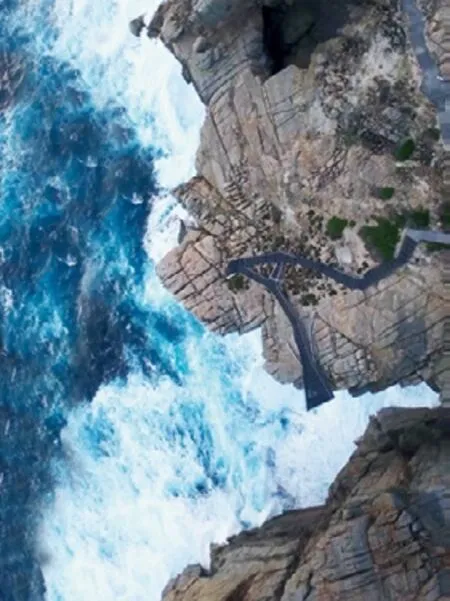刊首语
刊首语
我们应该有怎样的国家公园

孩子曾经问我,“你觉得美国什么方面好?”我说,“美国有两件东西是世界上其他国家很难超越的:一是美国的大学,优美开放的校园汇集了来自世界各地的学者和学生,这些大学是新思想的汇集地,也是许多科技创新的发源地;第二就是美国的国家公园,这一体制有效地保护着美国独特的自然风景和文化遗产,并欢迎世界各地的人前来参观欣赏”。
19世纪、甚至20世纪初以前,原产于美国的思想和技术屈指可数,然而“国家公园”却是实实在在的“美国制造”。对于美国人来说,国家公园体系是美国人的骄傲,是美国立国以来提出的最好的主意之一。
美国国家公园的诞生有着多方面的背景,其中之一就是浪漫主义自然审美观下的荒野保护与欣赏。美国的国土景观因为存在大范围的荒野而与欧洲大陆完全不同,但是在18―19世纪的城市化和工业化进程中,这些荒野不断受到侵袭,生态环境破坏严重,野生物种相继消失,原始森林所剩无几。19世纪之后,美国人意识到他们国家与众不同的环境特质正在迅速消逝,这激发了美国各界对具有美国烙印的本土景观的保护意识。
另一方面,国家公园是美国人民族身份的象征。作为年轻的移民国家,尽管美国在物质上获得了巨大进步,但是与历史悠久的欧洲相比,却缺乏令人引以为傲的具有民族象征性的事物。美国人在西进运动中不断发现众多壮美风景,并从中找到了民族文化的象征,保护这些独特的风景对缔造美国人的民族身份认同起到了重要作用。
还有一种说法是,美国设立国家公园的真实原因并不是所谓的环境价值或美学价值,而是为那些“无价值的荒地”寻找创造经济价值的途径。如黄石、火山口湖、冰川和大峡谷等早期的国家公园所处的地区均属于在伐木、采矿、放牧或者农业方面毫无价值的土地,旅游开发可能是这些地区唯一可以产生经济价值的途径。这一说法似乎剥掉了美国国家公园神圣的理想主义外衣,揭示出一个信仰工业成就和资本增长的国度必然考虑经济因素的事实。但我们必须承认,国家公园是美国在自然资源保护和旅游业管理方面的一种创新,它通过采用公共所有权的形式有效地防止了私人开发所带来的自然资源的破坏。
20世纪后,美国国家公园的理念在世界各地广泛传播,许多国家都相继建立了国家公园体系。虽然世界自然保护联盟(IUCN)对国家公园的定义和管理目标进行了界定,但是每一个国家的国家公园体系都不尽相同,都结合各自的地理环境、历史背景和国情现实进行了本土化的改变。无论形式怎样,国家公园的本质是不变的,它是一种自然保护地,拥有具高度美学价值、历史价值和国家代表性的自然景观与人文景观,包含具特殊价值的生态系统,并在有效地保护和管理的前提下供人参观游览。
中国的保护地体系非常复杂。在读硕士研究生时,我的研究方向是风景名胜区保护与规划。那时国家刚设立第一批44个国家级风景名胜区,我考察了其中的18个。中国风景名胜区的英语名称与美国的国家公园一致,都是“National Park”,当时普遍认为,中国的风景名胜区是与国际上的国家公园相对应的。但当我有机会考察美国国家公园后却发现两者之间存在着巨大的差异。与美国国家公园相比,由于风景名胜区中都有丰富的历史文化资源,所以保护的内容更加多样。风景名胜区中往往有众多的原住民,所以资源保护的压力和难度远较国家公园大。另外,两者的管理体制差异更大。
除了国家级风景名胜区外,中国的国家级保护地还有国家自然保护区、国家森林公园、国家湿地公园、国家地质公园、国家水利公园等。这些保护地在地域上相交叉重叠,管理上互相冲突,尽管国家级的各类保护地数量已近3 000个,面积上超过了国土的14%,但是资源的保护和管理并没有得到有效落实。
在中国建立国家公园、构建国家公园管理体制是理顺我国的保护地体系的一个契机。 由于中国地理环境极为复杂,历史悠久,人口众多,经济发展压力巨大,现有的自然保护体系多样而复杂,在中国建立国家公园体制会面临很多难题。中国的国家公园必须与国家特定的自然、历史和社会环境相关联。建设中国的国家公园,不可能理想化和简单化,不可能直接引进国外的理念,也不可能照搬任何一个国家的现成经验。中国应该有怎样的国家公园?这正是本期文章讨论的焦点。

主编:王向荣教授2017年7月15日
What kind of national parks should we have?
My child once asked, "What's good do you think in the United States?" I said, "There are two things in the United States is dif fi cult to surpass for the rest of the world: First, the universities, the beautiful and open campuses bring together scholars and the students worldwide, these universities are the gathering of new ideas, and also the birthplace of many technological innovations; the second comes the national parks in the United States, the whole system is effectively guarding the unique natural landscape and cultural heritage in the United States, and being ready to welcome visitors all over the world. "
In the 19th century, even by the beginning of the 20th century, the ideology and technology originating in the United States were numbered, but the "national park" was indeed "made in America". The national park system is the pride of the Americans, is one of the best ideas since the founding of the country.
The birth of the national park in the United States has multifaceted background, one of which is the trend of wilderness protection and appreciation with the prosperity of romantic natural aesthetic. The land appearance of the United States is completely different from Europe because of the extensive wilderness. While in the process of urbanization and industrialization in the 18th-19th century, these wilderness had been occupied successively, along with its environment destructed and the wild species disappeared, little remains the untamed forest. After the 19th century, the Americans realized that the distinctive characteristics of their national landscape were rapidly disappearing, thus the consciousness to protect the local landscape with the distinctive American brand is widely inspired.
Additionally, national park is a symbol of national identity for American. As a young country of immigrants, though with great progress achieved materially, compared with the time-honored Europe, the United States has been lack of national symbolic image. Just from those magni fi cent scenery constantly discovered in the Westward Movement, Americans found the symbol of their national culture. The protection these unique scenery has played an important role in forming American identity.
There is also a saying that the real objective of establishing national park in the United States is actually to create economic value for those "worthless wilderness" instead of the so-called environmental or aesthetic value. The early National Parks like Yellowstone, Crater Lake, Glacier, and Grand Canyon, are all located at the areas that were worthless for logging, mining, grazing or agriculture. Tourism may be the only out way to create economic value in these areas. This argument seems to strip the sacred idealist appearance of the American national park, revealing the fact that a country that believes in industrial achievement and capital growth is bound to seriously take economic factors into account. Still, we must acknowledge that national park is an innovation of the United States in natural resource conservation and tourism management, which effectively prevents the natural resource being destructed in private development through the utilization of public ownership.
After the 20th century, the concept of the national park has been widely spread throughout the world, many countries have established national park system successively. Although the International Union for Conservation of Nature (IUCN) de fi nes the definition and management objectives of national parks, national park systems various from each other between countries, and are localized with their own geographical environment, historical background and national conditions. Regardless of the diverse form, the nature of national park is identical, that is a nature reserve, as well a natural and cultural landscape with prominent aesthetic value, historical value and national representative, which generally includes unique and valuable ecosystem, and can provide tour route for visitors under effective protection and management.
The system of protected area in China is very complex. My research field was the protection and planning of national park in my graduate studies. At that time China has just set up the fi rst batch of 44 national parks, 18 of which I have visited. The English name of the "national park" in China is same as the national park of the United States. And it was widely believed that the concept of "national park" in China is equivalent to the national parks worldwide. But it is found that huge difference is in between when I had the opportunity to visit the national parks in the United States. Compared with that of United States, national parks in China have more diverse protect content because of the af fi liated abundant historical and cultural resources. Also, there often lives a large number of aborigines in China's national park, so comes much more pressure and difficulty in resource conservation. In addition, the management system differs even greater.
Apart from the National Park, national protected areas also include National Nature Reserves, National Forest Parks, National Wetland Parks, National Geological Parks, National Water Scenic Area, etc. These protected areas overlap with each other geographically and exist con fl icts in management. Although the number of national protected areas at is reaching 3 000, covering more than 14% of the area's territory, but the resource conservation and management are far from being effectively implemented.
The establishment of a national park and the construction of national park management system in China makes an opportunity to straighten out the system of protected area. With long history, huge population and extremely complex geographical environment, great pressure piled upon the economic development, and the diverse and complex existing nature conservation system, China will still face great obstacles in the establishment of future national park system. National park in China must fi t with speci fi c natural, historical and social settings. The construction of China's national parks, cannot be idealized and simplistic, cannot directly introduce foreign ideas, or copy their experience. What kind of national parks should China have? This is the focus of this issue.
Translator: WANG Xi-yue
Chief Editor: Prof. WANG Xiang-rong July 15th, 2017

